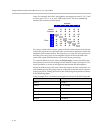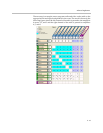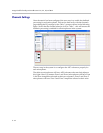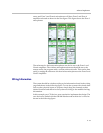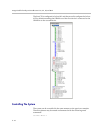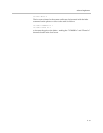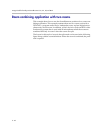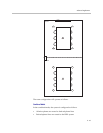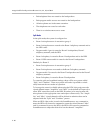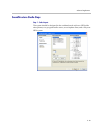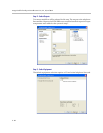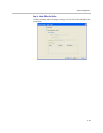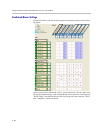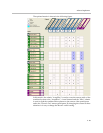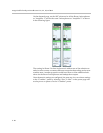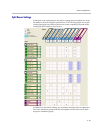
Design Guide for the Polycom SoundStructure C16, C12, C8, and SR12
9 - 80
• Both telephone lines are routed to the loudspeakers
• Both program audio sources are routed to the loudspeakers
• All microphones are in the same automixer
• The telephones are routed to each other
• There is no reinforcement across zones
Split Mode
In the split mode, the system is configured as:
• Room 1 microphones are in automixer group 1
• Room 1 microphones are routed to the Room 1 telephony transmit and to
the HDX codec
• Program audio 1 goes is routed to Room 1 loudspeakers, Room 1
telephony transmit, and the HDX
• Room 1 telephony is routed to Room 1 loudspeakers and to the HDX
• Room 1 HDX remote audio is routed to the Room 1 loudspeakers
Similarly for Room 2:
• Room 2 microphones are in automixer group 2
• Room 2 microphones are routed to the Room 2 telephony transmit
• Program audio 2 is routed to the Room 2 loudspeakers and to the Room 2
telephony transmit
• Room 2 telephony is routed to Room 2 loudspeakers
To create the split and combined settings, there will be two presets called
“Split” and “Combine”. These two presets will make it possible to switch
easily between the two modes of operation.
To leverage the control available when using the HDX, this project uses the
virtual channel names “Amplifier” and “Mics” (as described in Chapter 6) to
allow HDX controllers (such as the HDX IR remote) to be used to mute the
microphones in the appropriate zone and adjust volume easily. The “Ampli-
fier” and “Mics” virtual channels will be defined as submixes that can be
adjusted with the “Split” and “Combine” presets.
When an HDX video codec is used with SoundStructure, any command to
mute the HDX will forward a command to mute the virtual channel “Mics”
and if a command is sent to the HDX, the HDX will forward a command to
SoundStructure to adjust the fader level on the channel “Amplifier”.



